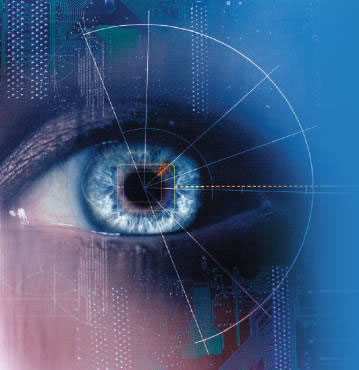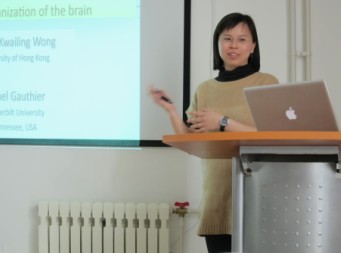 |
Alan Chun-Nang Wong 博士与Yetta Kwailing Wong博士来阅读与视觉认知 室做报告
Time: 2:00 pm -4:00 pm, Wednesday, April 20, 2011
Place: 524 South Building, Institute of Psychology, CAS
Talk 1: Holistic processing of English words and Chinese characters
By: Alan Chun-Nang Wong
Assistant Professor, Department of Psychology, Chinese University of Hong Kong
Dr. Wong’s research interest concerns with perceptual expertise, object recognition, culture and perception, consciousness, etc. Some of his studies have been published in the following journals: Trends in Cognitive Sciences, Psychological Science, Vision Research, Visual Cognition, Perception, Journal of Vision, PLoS ONE, Journal of Experimental Psychology: Human Perception & Performance, etc.
Abstract: The study of perceptual expertise has been focusing on categories like faces, cars (for car experts), birds (for bird experts), etc. Expert perception in these categories requires fine, subordinate-level individuation of similar objects, and it is thought that holistic processing is developed as an optimal strategy to meet this recognition demand. Curiously, perception of words has been regarded as a very different type of expertise, emphasizing basic-level recognition and part-based processing strategies. We therefore tested whether holistic processing would also occur for word perception. We adopted the often-used face composite task to English words and showed holistic processing for words, contrary to previous claims. The holistic processing effect was larger for experts (i.e., native compared with second-language readers) and more frequently encountered stimuli (i.e., words compared with pseudowords), indicating that holistic processing of words is sensitive to the amount of experience. Interestingly, experiments with Chinese characters showed a different pattern of result, with similar level of holistic processing for experts (Chinese readers) and novices (non-Chinese readers). Follow-up experiments suggested different origins for the effects in the two groups. For experts, holistic processing was sensitive to the amount of experience with the characters, as it was larger for words than non-words. Novices, however, showed similar degree of holistic processing to words and non-words, suggesting that their effects were more related to their inefficient decomposition of a complex, character-like pattern into parts. Overall, results cast doubt on the simple distinction between holistic face-like expertise and part-based word recognition, and call for a richer cognitive model for explaining perceptual phenomena with different object categories.
Talk 2: Music reading expertise: A tool to understand perceptual expertise, musical skills and the functional organization of the brain
By: Yetta Kwailing Wong
Postdoctoral Fellow, Department of Psychology, University of Hong Kong
Dr. Yetta Kwailing Wong is interested in exploring the relationship between experience and multisensory integration, how experience changes visual processes and the functional organization of the visual cortex using fMRI. Some of his studies have been published in the following journals: Journal of Cognitive Neuroscience, Journal of Vision, Cognitive, Affective, & Behavioral Neuroscience, et c.
Abstract: Becoming a musician is challenging, as one has to efficiently integrate information from visual, auditory, somatosensory, motor and emotional domains during performance. While music reading is an essential skill to acquire in musical training, this visual skill has received little attention in the music literature. In this talk, I will review my recent work exploring how music reading expertise transforms the visual processes for musical notation. In the behavioral level, I will talk about two projects related to holistic processing and crowding, revealing how experts become highly sensitive to the relationship between musical notes, and yet retaining the ability to extract the identity of each note. These skills are likely central to the fast and accurate music reading performance in experts. In the neural level, I will describe fMRI and ERP data showing how the brain processes musical notes differently with experience, from the initial visual processes of notes within 40-60ms to a large-scale multimodal network of brain activations specialized for musical notes. I will end the talk by discussing how these findings provide useful information for the understanding of visual perceptual expertise (e.g. recognizing faces, words, etc.), musical skills and the functional organization of the brain.
